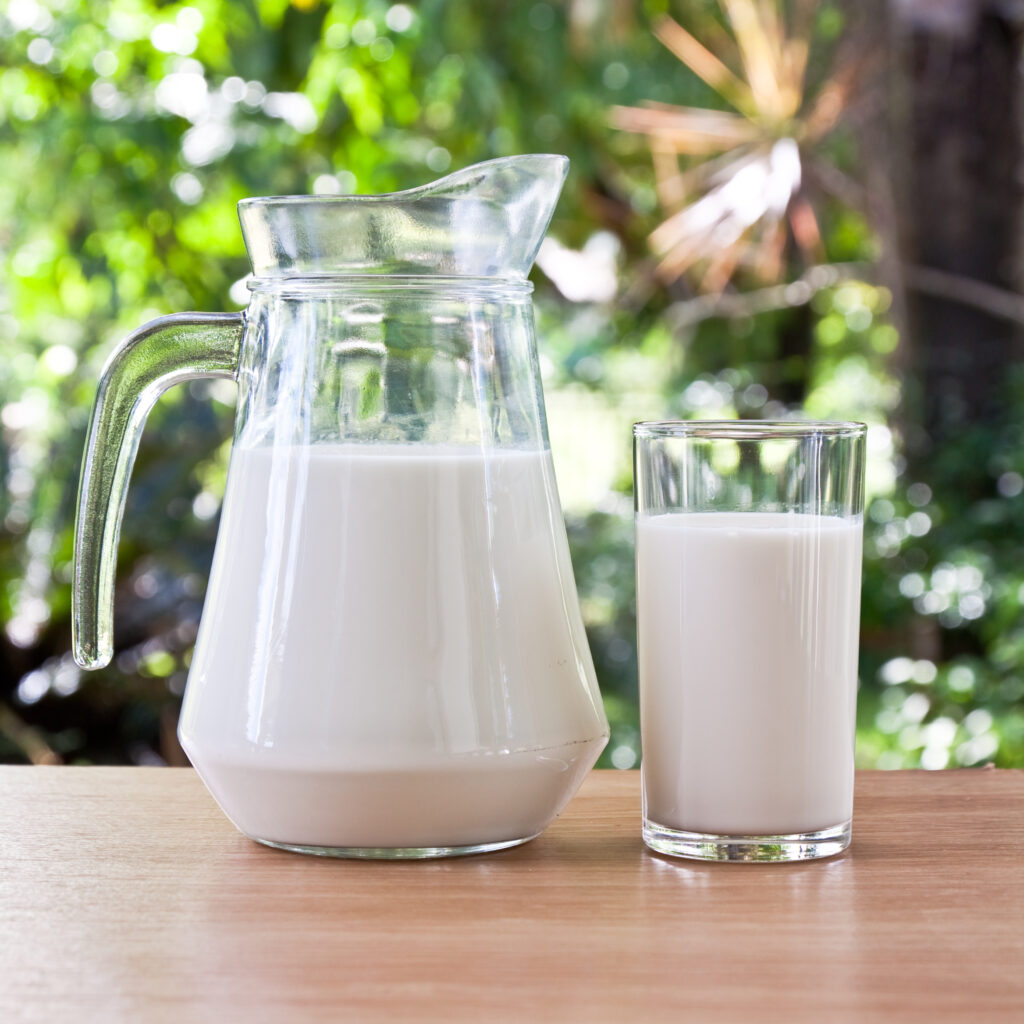
Have you ever wondered if full-fat milk could actually be beneficial for your health? Contrary to popular belief that low-fat diets are always better, there are several surprising benefits to including full-fat milk in your diet. In this article, we will explore:
- The nutritional benefits of full-fat milk.
- Examination of whether full-fat milk contributes to weight gain.
- Insights into full-fat milk and heart health based on recent research.
- A comparison between full-fat milk and low-fat milk highlighting pros and cons.
- How full-fat milk fits into a balanced diet.
So let’s dive into why full-fat milk might be just what your body needs!
The Nutritional Benefits of Full-Fat Milk
Full-fat milk is packed with essential nutrients, making it an excellent choice for many. It boasts a rich source of vitamins such as A, D, E, and K. These are fat-soluble vitamins, meaning they are best absorbed when consumed with fat. Additionally, full-fat milk provides high-quality protein, essential fatty acids, and various minerals like calcium and phosphorus, which are vital for strong bones and teeth. Considering the nutritional value of full-fat milk, incorporating it can contribute significantly to your daily nutrient intake.
Does Full-Fat Milk Contribute to Weight Gain?
One of the biggest concerns people have is whether full-fat milk contributes to weight gain. Ironically, studies have shown that those who consume full-fat dairy products tend to be leaner than those who opt for low-fat alternatives. The full-fat milk calories might sound intimidating, but the satiating nature of fats can help regulate appetite and reduce overall calorie consumption. This presents an interesting perspective on full-fat milk weight gain and suggests that full-fat milk may not be the villain it was once thought to be.
Full-Fat Milk and Heart Health: What the Research Says
When it comes to heart health, the role of full-fat milk is hotly debated. Some fear the high cholesterol content, but research says otherwise. Full-fat milk research indicates that the saturated fats found in full-fat milk might actually improve HDL, or “good” cholesterol levels, which are essential for heart health. Recent studies have challenged the notion that all saturated fats are harmful, suggesting that full-fat milk may have a place in a heart-healthy diet. Understanding full-fat milk heart health can shed light on the broader discussion of dietary fats.
Comparing Full-Fat Milk and Low-Fat Milk: Pros and Cons
When comparing full-fat vs. skim milk, it’s crucial to weigh the pros and cons of each. Full-fat milk offers richer flavors and is more filling due to its higher fat content, which can help with satiety. On the other hand, low-fat milk provides fewer calories and fats, which some might consider beneficial for weight management. However, low-fat milk is also less satisfying and can lead to overconsumption of other foods. Therefore, understanding the pros and cons of full-fat milk can help you make an informed decision based on your health goals and lifestyle.
Now that you’ve learned about the benefits, weight-related aspects, heart health contexts, and the comparisons with low-fat milk, let’s move forward.
The Role of Full-Fat Milk in a Balanced Diet
Incorporating full-fat milk into a balanced diet can be beneficial. The creamy texture and rich taste make it a delightful addition to meals, whether in breakfast cereals, coffee, or even as a post-workout drink. Full-fat milk contains essential fatty acids that support brain function and cellular health. Balancing full-fat milk with other nutrient-dense foods can provide a comprehensive array of nutrients, fostering overall well-being. Full-fat milk diet considerations should align with your individual nutritional needs and lifestyle preferences.

Understanding Full-Fat Milk’s Vitamin Content
Full-fat milk’s vitamin content is an area often overlooked. It’s a powerhouse of vitamins A, D, E, and K, which play crucial roles in visual health, immune function, skin health, and blood clotting. These vitamins are fat-soluble, meaning they need the presence of fat to be absorbed efficiently by the body. Thus, the higher fat content in full-fat milk ensures that these vital vitamins are adequately utilized. This aspect of full-fat milk benefits clearly showcases its role in maintaining good health.
Debunking the Myths Around Full-Fat Milk and Weight Loss
When people contemplate weight loss, full-fat milk usually isn’t their first choice, primarily because of its calorie content. However, there’s growing evidence that it may aid in weight loss efforts. Consuming fats can lead to greater satiety, reducing the likelihood of overeating. Healthy fats in full-fat milk help you feel fuller longer, which could support calorie control. So, when considering weight management, don’t dismiss full-fat milk weight loss benefits without a thorough evaluation.
Pros and Cons of Full-Fat Milk
As with any food product, there are both pros and cons of full-fat milk. The pros include a richer nutrient profile, increased satiety, and better absorption of fat-soluble vitamins. On the flip side, it contains more calories and saturated fat compared to low-fat options. It’s essential to consider these factors within the context of your overall diet. As with everything, moderation is key. Therefore, integrating full-fat milk wisely can maximize its benefits while reducing potential downsides, like concerns over full-fat milk cholesterol levels.
You’ve explored its contributions to a balanced diet, the vitamin content, potential support in weight loss, and a balanced view on the pros and cons.

Full-fat milk offers a surprising array of benefits that can contribute positively to your overall health. From its rich nutritional profile and potential benefits for weight management to its complex role in heart health and its valuable vitamin content, full-fat milk stands out as more than just a dietary indulgence. By understanding and embracing the full-fat milk benefits, you can make informed choices that align with your health goals and dietary needs. So the next time you reach for a glass of milk, consider giving full-fat milk the starring role in your diet.